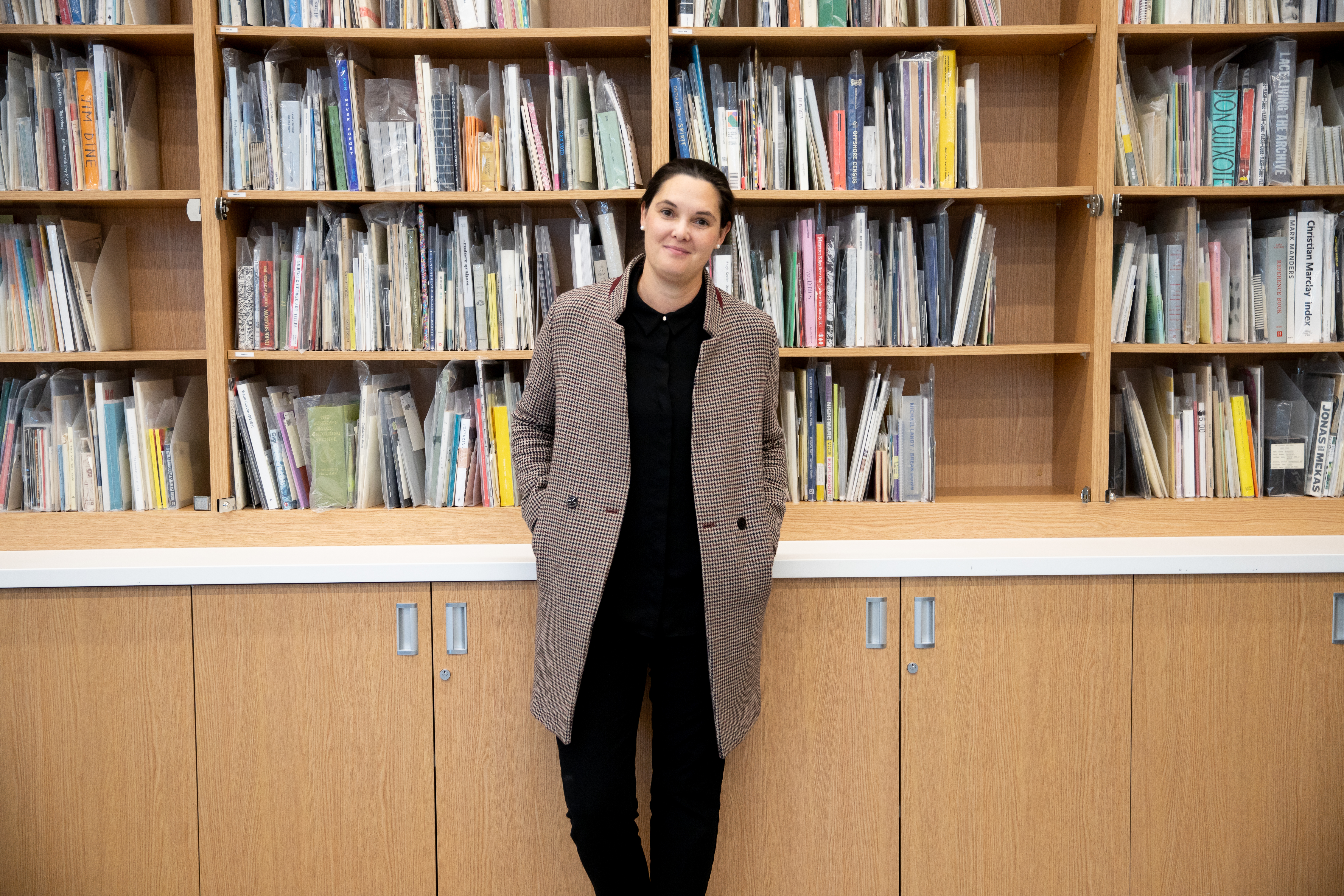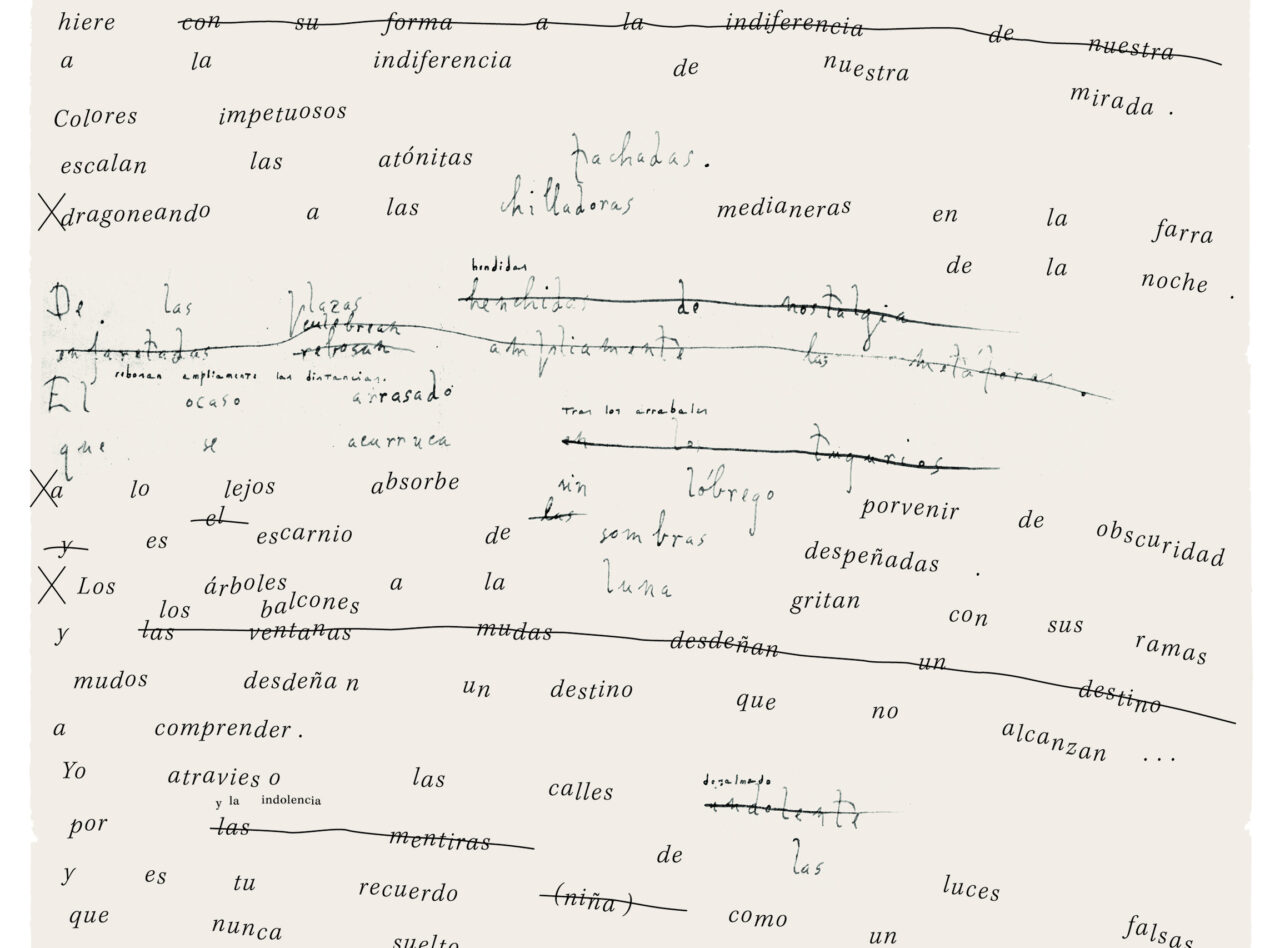Celeste Martin Reappointed for Second Term as Dean, Ian Gillespie Faculty of Design + Dynamic Media

Posted on | Updated
The experienced designer, educator and administrator began her second decanal appointment in August 2023.
Designer, design researcher and educator Celeste Martin has been reappointed for a second term as Dean, Ian Gillespie Faculty of Design + Dynamic Media (DDM), at Emily Carr University.
Her reappointment, which followed nearly a year of internal review by faculty colleagues and leadership, began in August 2023 and will run through 2028.
“Celeste has shown extraordinary leadership in supporting faculty to think through how environmental and social responsibility can be more deeply embedded in their practices, pedagogy and research,” says Diyan Achjadi, ECU’s Interim Provost + Vice-President, Academic. “Her strength and ability are also evident in the details, such as ensuring that learning outcomes and quality assurance remain front and centre at every level of operation. She has worked tirelessly with faculty to develop and implement a vision for a justice-oriented and future-thinking DDM, and I’m delighted we’ll have the chance to work together to continue support this evolution.”
Celeste first came to ECU as a Visiting Designer, taking a position as tenure-track faculty in the Communication Design and Foundation programs in 2010. She served as an Associate Dean in the Master of Design program and Assistant Dean in the Bachelor of Design program. She has also mentored graduate students as supervisor and internal examiner as well as through research assistantships and teaching fellowships.
Celeste notes her first term came during a time of substantial institutional change which saw a significant leadership shift, a fire, a pandemic, the continued effects of climate change and a student-led movement for antiracist reforms following the murder of George Floyd.
“Our climate emergency and our society’s demands for more just, inclusive academic institutions are going to continue to be things we’re shaped by, and I think we’ve learned a lot about engaging meaningfully with difference and challenging entrenched disciplinary worldviews,” Celeste says. “So how do we continue to craft identities for our programs that reflect students’ realities, aspirations and a deep recognition of place? For me, that’s the most exciting part: working with faculty to think about the future of these programs, and crafting conditions for students to have a transformational, affirmative and empowering experience at Emily Carr.”
Celeste was born in Argentina and spent her formative years in Venado Tuerto, Santa Fe. She attended the National University of Córdoba and later moved to the United States to pursue a BFA and an MFA in Design, both from the University of Iowa. She brings diverse geopolitical perspectives and lived experience as a queer Latina immigrant and settler in Canada to her role.
Celeste has served on numerous hiring and governance committees including Senate, the Research Ethics Board, Strategic Enrollment Management, Digital Transformation Council, Senate Executive, Aboriginal Advisory Committee and Climate Action Taskforce. She currently chairs the Senate Governance Committee.
Celeste was a key academic leader during a program review and the Provincial Quality Assurance Process Audit. She contributed to two rounds of labour negotiations in the administration’s committee.
As part of her work to centre Equity, Diversity and Inclusion, Celeste launched the DDM Antiracist Dialogues in 2020 to empower community engagement around addressing institutional racism and white supremacy. She also led the DDM Speaker Series focusing on emerging practices, antiracism and decolonization, climate justice and Indigenous ways of knowing and making. Working with the AGP, she hosted the Indigenous Design Network during the ico-D Conference.
She provided leadership for the Climate Justice Taskforce’s curriculum group and stewarded the launch of a Minor in Ecological Design Practices which situates design practices in relation to ecological needs.
She drove critical curricular renewal and growth including new courses, pathways and field schools, guided the creation of values-driven Learning Outcome Frameworks for all DDM programs and brought to ECU major international and local conferences (ico-D, Radical Research, GDC Practivism, RGD Educators and Spark Animation).
As an advocate for student experience, she created the Student Townhalls Program that connects students with academic leadership as well as a Microgrants Program to fund student-led community-building initiatives. She also piloted a Student Fellowship Program supporting course-based projects on social and climate justice presented at the Undergraduate Symposium in 2022.
Under her leadership, DDM programs and curricula continue to expand to offer more plural, diverse and inclusive approaches to practice. This programming seeks to challenge colonial structures and recognize the crucial role of art, media and design in co-creating resilient communities, relational goods, and equitable futures.

From Celeste Martin's work on Poemas y Prosas Breves. (Image courtesy Celeste Martin)
Additionally, Celeste has maintained an active design research practice. Her most recent work involves the translation of Jorge Luis Borges’ manuscripts into typographic texts as both research tools and autonomous aesthetic objects. She led the transcription of a corpus of Borges’ manuscripts and co-edited Poemas y Prosas Breves (2018), Ensayos (2019) and Cuentos (2020). She has presented at national and international conferences and published in journals and books. She is currently working on a book on Borges’ conferences to be published in 2024.